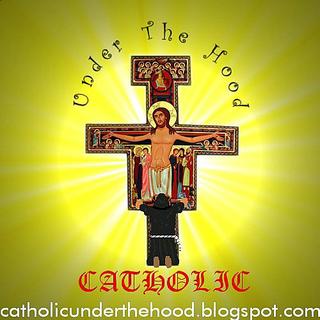The difference between good and bad ecumenism
At a mosque in Australia, there was an ecumenical prayer service involving Christians, Jews, and Muslims organized by Catholic priest Father Michael Tate.
What caught my eye was the usual justification given for this prayer - the life of St. Francis of Assisi. In modern times, Francis has become the patron saint for ecumenical activity and history has been rewritten so that Francis' attempt to convert the Muslims has become simply a proto-ecumenical exchange. Truly such a presentation is not only bad history but it does a disservice both to the memory of St. Francis and to the first Franciscan martyrs who gave up their lives trying to preach Christianity to the Muslims.
Pope John Paul II chose Assisi in which to have an ecumenical gathering seeking peace among people of different faiths. However, these gatherings were not designed to say that all faiths are somehow the same, nor did the people of different faiths pray together. Each faith community was to pray for peace in their own way and in their own space.
When, as happened at this mosque in Australia, you have people of different faiths praying in the same place, you run into the danger of a syncretism that denies the real distinctiveness between Islam, Judaism, and Christianity. You also risk losing our evangelical mandate to spread the good news of Christ. The presumption becomes that all religions are the same, that there is no difference even between belief and non-belief. This certainly is not the vision of Francis who saw that his whole life was rooted and ordered toward Christ and the Church - who whenever he passed a church would pray, "We adore you, O Christ, and we bless you. Because by your Holy Cross, you have redeemed the world."
I also noted in the article:
The Islamic community welcomed the service as an opportunity to provide information on the faith. Free copies of the Koran, brochures and computer discs on Islam were available at the entrance to the mosque.
There was no indication whether Father Tate used the opportunity to provide free Bibles, brochures and computer disks about Catholicism.
What caught my eye was the usual justification given for this prayer - the life of St. Francis of Assisi. In modern times, Francis has become the patron saint for ecumenical activity and history has been rewritten so that Francis' attempt to convert the Muslims has become simply a proto-ecumenical exchange. Truly such a presentation is not only bad history but it does a disservice both to the memory of St. Francis and to the first Franciscan martyrs who gave up their lives trying to preach Christianity to the Muslims.
Pope John Paul II chose Assisi in which to have an ecumenical gathering seeking peace among people of different faiths. However, these gatherings were not designed to say that all faiths are somehow the same, nor did the people of different faiths pray together. Each faith community was to pray for peace in their own way and in their own space.
When, as happened at this mosque in Australia, you have people of different faiths praying in the same place, you run into the danger of a syncretism that denies the real distinctiveness between Islam, Judaism, and Christianity. You also risk losing our evangelical mandate to spread the good news of Christ. The presumption becomes that all religions are the same, that there is no difference even between belief and non-belief. This certainly is not the vision of Francis who saw that his whole life was rooted and ordered toward Christ and the Church - who whenever he passed a church would pray, "We adore you, O Christ, and we bless you. Because by your Holy Cross, you have redeemed the world."
I also noted in the article:
The Islamic community welcomed the service as an opportunity to provide information on the faith. Free copies of the Koran, brochures and computer discs on Islam were available at the entrance to the mosque.
There was no indication whether Father Tate used the opportunity to provide free Bibles, brochures and computer disks about Catholicism.










1 Comments:
What do you think of Muslims worshipping at Fatima, on our altar?
Post a Comment
<< Home